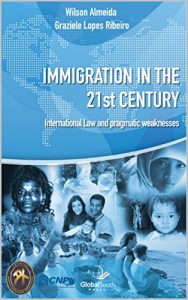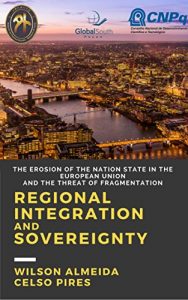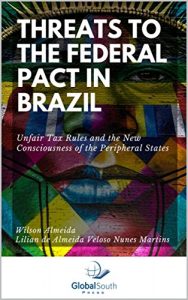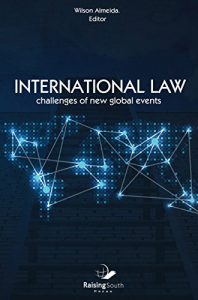This book has the background of the theme immigration and arises from the need to consider immigration as a global process. We intend to analyze the implications of globalization as a process that changes and transforms migratory currents, forcing nations to conform their laws on immigration to receive large numbers of people moving to escape the dangers of war and other conflicts. It is observed that the Brazilian immigration law has become obsolete and full of loopholes and an update on its immigration policy is needed. There are several schools of thought within the Brazilian society on immigration. Some groups encourage the entry of new immigrants and others are opposed to it. The research methodology used in this book is essentially bibliographical and qualitative. This is the compilation of various sources of doctrine, international treaties and the Brazilian legislation.
Human history is intertwined with the history of human immigration. Since always, individuals roam the planet promoting intercontinental migratory events. However, the emergence of nations, with their territories, led to a series of restrictions on the movement of persons around the world. The notion of sovereignty and self-determination created conditions for each nation manage the movement of persons in its physical space and to regulate these movements, countries began to establish their own and independent immigration policies.
Thus performed the Brazil: set its norms and regulated its borders, always to meet the prevailing interests in each period. The country's history can be told by the trajectory of immigrants, from the arrival of the Portuguese was marked by foreigners waves that here sought for land or the promised work, taking up residences, forming families and developing the nation. Initially, there was a significant input of an immigrant group, mainly from Europe. At other times, diasporas were observed. Currently, transformed by the economic development, the Brazil has, once again, be a target of a new immigration wave.
The recent increase in interconnection between nations, the facilitation and the cheapening of means of transport, combined with the accelerated development of the media, broke paradigms and are reshaping the world. The globalizing wave reached all spheres, be they public or private. The multidimensional nature of mundialization has meant that its impact would be felt simultaneously in the social, economic, political, environmental, cultural and scientific. In this path, migrations have been and continue to be processed, which requires nations to conform to this new reality. New terms have been forged, and the traditional immigrants have become transmigrants. The emigrational chains become more volatile, more complex and multinational.
This book wants to open discussions in Brazil and Latin America about the new immigration phenomenon of the twenty-first century. For this, the contribution of the universities seems to be essential.
Human history is intertwined with the history of human immigration. Since always, individuals roam the planet promoting intercontinental migratory events. However, the emergence of nations, with their territories, led to a series of restrictions on the movement of persons around the world. The notion of sovereignty and self-determination created conditions for each nation manage the movement of persons in its physical space and to regulate these movements, countries began to establish their own and independent immigration policies.
Thus performed the Brazil: set its norms and regulated its borders, always to meet the prevailing interests in each period. The country's history can be told by the trajectory of immigrants, from the arrival of the Portuguese was marked by foreigners waves that here sought for land or the promised work, taking up residences, forming families and developing the nation. Initially, there was a significant input of an immigrant group, mainly from Europe. At other times, diasporas were observed. Currently, transformed by the economic development, the Brazil has, once again, be a target of a new immigration wave.
The recent increase in interconnection between nations, the facilitation and the cheapening of means of transport, combined with the accelerated development of the media, broke paradigms and are reshaping the world. The globalizing wave reached all spheres, be they public or private. The multidimensional nature of mundialization has meant that its impact would be felt simultaneously in the social, economic, political, environmental, cultural and scientific. In this path, migrations have been and continue to be processed, which requires nations to conform to this new reality. New terms have been forged, and the traditional immigrants have become transmigrants. The emigrational chains become more volatile, more complex and multinational.
This book wants to open discussions in Brazil and Latin America about the new immigration phenomenon of the twenty-first century. For this, the contribution of the universities seems to be essential.












